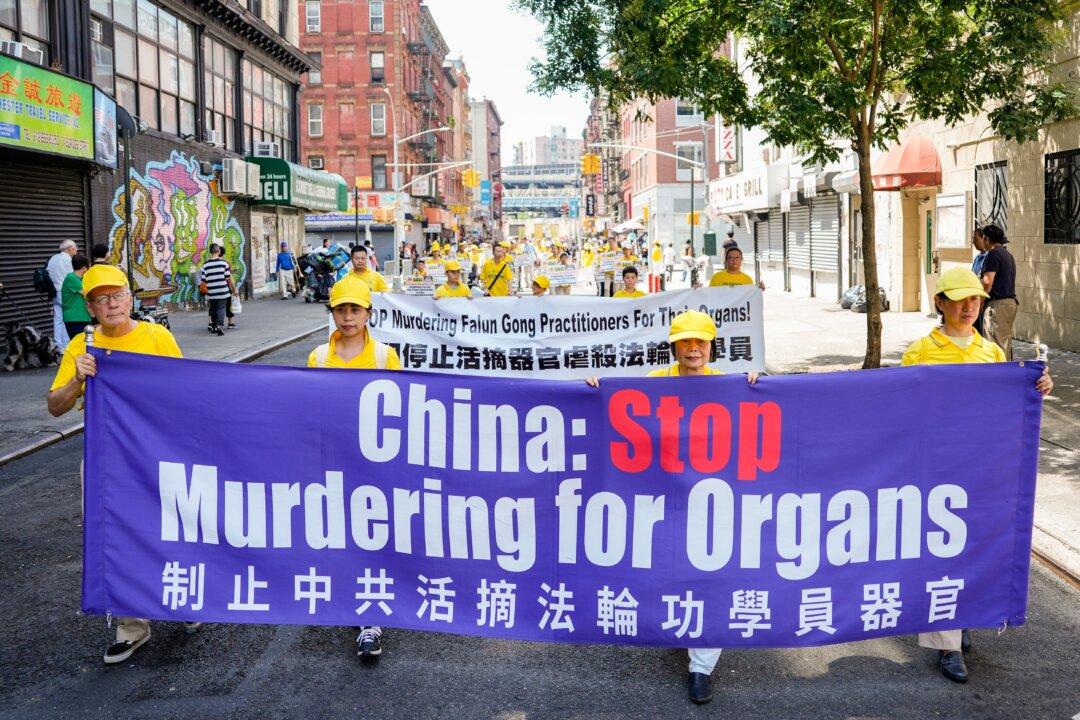Whether Taiwan is part of China’s territory is a question that 44 international airlines have been compelled to answer since the Chinese regime issued a demand in April to remove all references to Taiwan from their websites and promotional materials.
More than 20 airlines have since given in to Beijing’s request and removed any reference to Taiwan as a country from their websites’ menu options. Taiwan is instead referred to as “Chinese Taipei” or “Taiwan, China.”
The British government made its stance on the issue clear on July 10 via a statement from its foreign minister for the Asia-Pacific region.
Though Taiwan is a self-ruled nation with its own democratically elected government, currency, and military, Beijing has claimed it as a renegade province of China that will one day be united with the mainland, using military force if necessary. Recently, the communist regime has stepped up pressure on foreign governments to adopt the “one China policy” and only recognize Beijing.
China is also demanding that references to Hong Kong and Macau—former European colonies that are now part of China but run largely autonomously—also be changed.
The U.S. administration has called out China’s request as “Orwellian nonsense” and “part of a growing trend by the Chinese Communist Party to impose its political views on American citizens and private companies.”
After the United States made its position clear, American carriers American Airlines, Delta Air Lines, and United Airlines have not made any changes to references to Taiwan on their websites.
In May, British Airways made changes to its references to Taiwan, according to Taiwan’s Central News Agency, when the island became “Taiwan-China” on its website.
Two members of UK Parliament, Andrea Jenkyns and Bob Blackman, thus posted questions to Mark Field, the UK’s minister of state for Asia and the Pacific at the Foreign and Commonwealth Office.
“What [are] the implications ... for his policies of China’s (a) pressuring British Airways and other airlines to use its nomenclature for Taiwan on their websites and (b) interfering in other ways in the free operation of international business,” the two parliamentarians asked via the UK Parliament website.
In response, Field wrote that the UK government’s “long-standing policy” was to refer to Taiwan simply as “Taiwan.” Furthermore, when Taiwan is included among a list of places, it will be named under an inclusive heading, such as “country/territory” or “world locations.”
“Private companies and organizations should be able to decide the terminology that they use to list destinations,” wrote Field. He added, “UK companies should not be placed under political pressure to make changes.”
Field also said Foreign and Commonwealth Office (akin to foreign affairs department) officials have already registered their concerns with the Chinese authorities.
In response to Field’s comments, Li Xian-zhang, spokesperson for Taiwan’s Foreign Ministry, thanked the UK government for its apparent friendly gesture toward Taiwan, according to Taiwan’s Central News Agency.
Li added that while Taiwan would never accept the Chinese regime’s “unreasonable and overbearing practice” of pressuring airlines, it would continue to proactively reach out to other countries who share Taiwan’s values and “defend democracy, freedom, and universal values together.”
Nationalists, or members of Kuomintang, retreated to Taiwan in 1949 after suffering defeat at the hands of the Chinese Communist Party (CCP) during the Chinese Civil War. Since then, China has remained under authoritarian rule, while Taiwan transitioned into a multiparty democracy, with the island country holding its first presidential elections in 1996.
The Chinese regime has worked to diminish the island country’s international standing, such as by pressuring the World Health Organization (WHO) to bar Taiwan from sending representatives to its annual meeting, the World Health Assembly (WHA).
June Teufel Dreyer, professor of political science at the University of Miami, in a recent article published in The National Interest magazine, pointed out that the CCP’s United Front Work Department has made concerted efforts at subversion within Taiwan, such as funding Taiwan’s Communist Party and New Party, which supports unification with China.
The United Front Work Department is tasked with spreading CCP propaganda abroad by recruiting spies and infiltrating overseas Chinese communities.
Taiwan’s Communist Party was officially dissolved in June, following Taiwan’s enactment of a new law restricting political parties that fail to have members elected to public office.






Friends Read Free